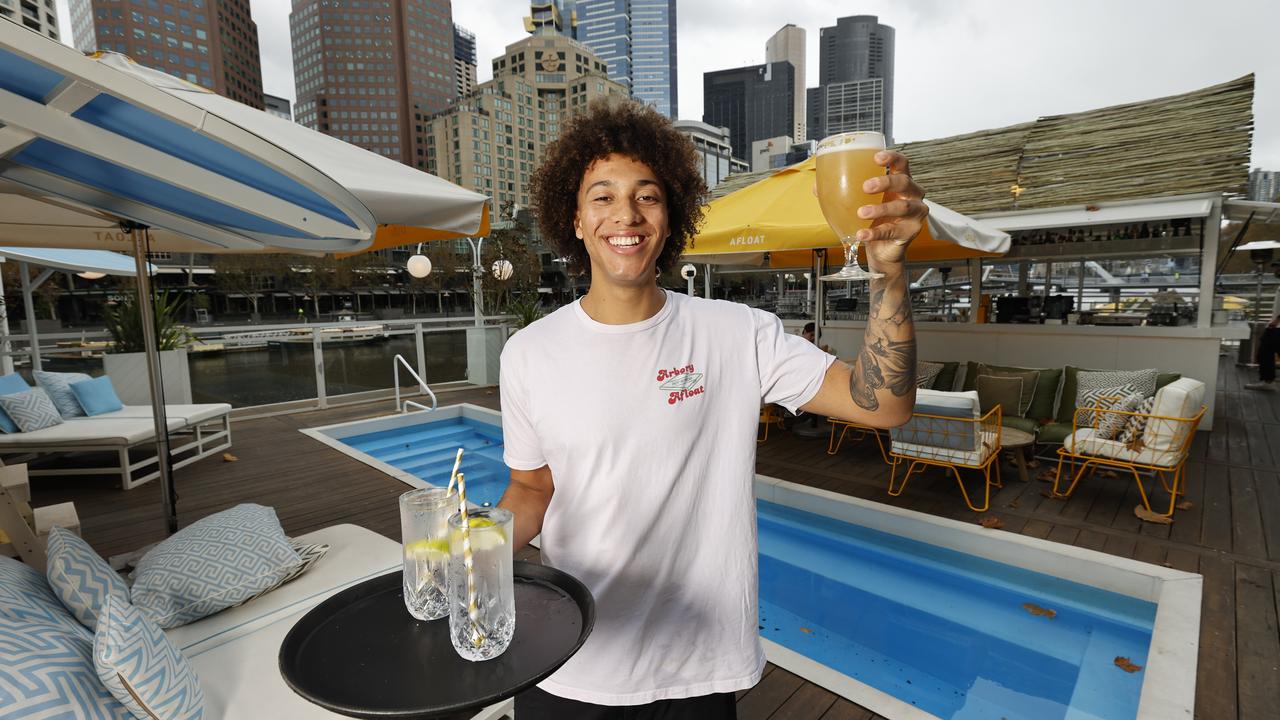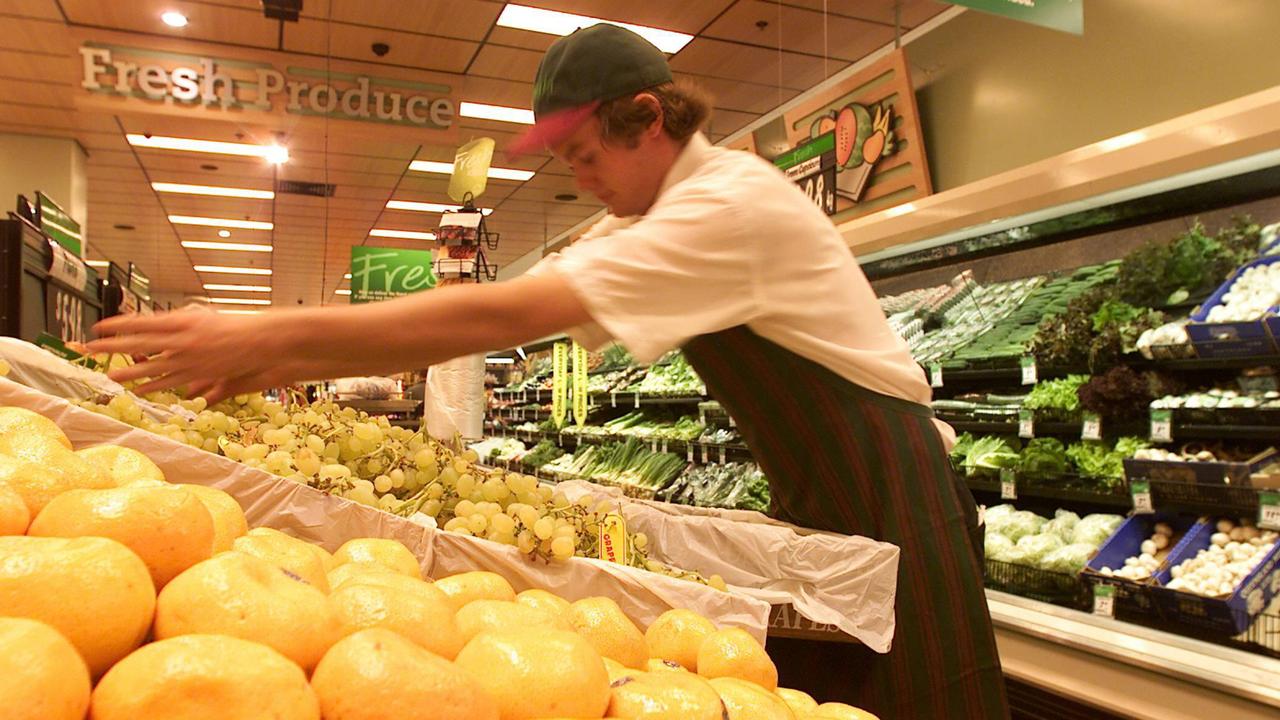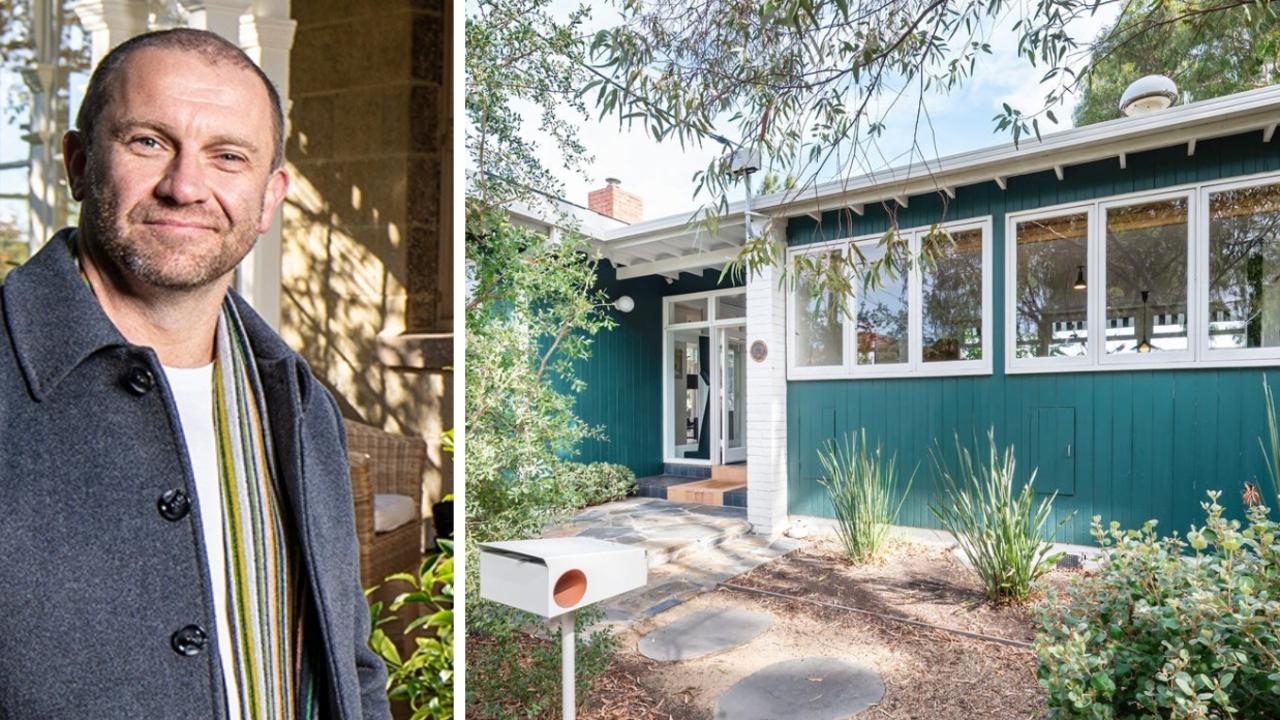A growing number of young people are choosing to work part rather than full-time. Here’s why.
Older workers say they’re lazy but young people choosing part over full-time jobs say they want freedom and life balance. Who’s got it right?

News
Don't miss out on the headlines from News. Followed categories will be added to My News.
Billionaire businesswoman Kim Kardashian enraged fans when she recently declared “nobody wants to work these days”, but did she have a point? At least when it comes to young people and full-time work, for others.
Part-time, freelance and casual work is proving preferable to growing numbers of young Victorian workers who are turning down well paid, permanent full-time jobs in favour of flexibility and work-life balance.
In what hospitality and retail industry insiders say is proof younger generations are reluctant to work when it doesn’t suit them, thousands of hospitality and retail jobs are going begging in Melbourne, with business owners often unable to fill shifts.
Young workers told the Herald Sun they had reassessed their lives during the Covid pandemic, and full-time work was now less of a priority than freedom, health and happiness.
But a hospitality veteran of 35 years said the truth was they wanted to “work on their terms, choosing which days and what hours”, and had become “demanding and lazy”.
Craig Guinane - a former professional barman and Ringwood RSL assistant manager - said gone were the days when staff happily worked when they were needed.
“They’ve got lazy and expect things to be handed to them on a plate . . . we used to do what was required, when it was required and got the job done with pride and care. That, nowadays, is sadly missing,” he said.

Yarra at The Transport Hotel manager Imran Nicholls said young staff members routinely dictated their rosters and pulled out of shifts at the last minute, with some saying they were simply “too tired” to work.
“People don’t want to work late nights,” Mr Nicholls said.
“You train them and then after three weeks when they’ve settled into the job, they say they can’t work Fridays and Saturdays anymore. They say they can’t work more than five hours at a time or that you can only roster them two days in a row. There is someone who calls in sick every morning for their lunchtime shift. People will say I’m just too tired so I didn’t come to my shift . . . there was no way I would have done what some of these kids are doing (at their age).”
Mr Nicholls, who has managed the popular three-level hotel for the past four years and has worked in hospitality for almost two decades, said he noticed a staff attitude change after Melbourne’s Covid lockdowns, with many people opting out of the industry for good.
“I had so many people leave during Covid and say ‘I’m working at Coles now because it’s really easy. I don’t have to work hard there’,” he said.
It comes as new research reveals work-life balance and flexibility is more important to many young people in 2022 than pay or the possibility of career progression, and workplace experts say quality of life is increasingly important to workers.
Australian Bureau of Statistics data shows that since 2012, the number of Australians aged between 20-24 years-old who were unemployed but looking for part-time work only, increased by almost 30 per cent while those who were unemployed looking for full-time work decreased by 13 per cent.
Director of Swinburne’s Centre for the New Workforce, Sean Gallagher, said there had been a major shift in work preferences the past decade, with many young people opting to work less rather than more hours.
“There is no doubt that younger workers want work-life balance . . . it’s incredibly important to them,” Dr Gallagher, who is one of Australia’s leading experts on the future of work, said.
“I know of many workers who are prepared to let go of full-time work . . . a lot more than a decade ago.”
Growing numbers of young people wanted to be part of the flexible ‘gig economy’, with jobs such as Uber drivers or freelancers, where they could work to suit themselves, rather than in permanent positions for others, he said.
Lukanda Teziggwa, 24, who works part-time at popular Melbourne CBD restaurant Arbory Afloat said after two years of lockdowns young people had reassessed their priorities.
“Before Covid everyone was in this tunnel vision of ‘oh I have to go to uni, I need to find a job’,” he said.
“But a lot of people lost their freedoms in lockdown. It made you reassess your life and your own priorities. It really flipped the whole script.”

The part-time model said work-life balance was a big priority for him.
“If I can’t work on a Friday, I just tell my boss I can’t work on a Friday. They can’t really hold you accountable because it’s a casual job,” he said.
Restaurant and Catering Australia boss Wes Lambert said many Victorian hospitality workers forced out of the industry during Covid lockdowns had found jobs that better suited their lifestyles, “especially those that allow them to work from home, which is almost impossible in hospitality”.
A large number of those people had chosen not to return to hospitality, creating a jobs crisis.
Australian Retailers Association chief Paul Zahra said labour shortages in that industry was not a new challenge but had become “more acute” over the last couple of years.
“Retail is not immune to the great resignation factors, however, with the lowest unemployment rate in many years, we are also facing greater competition for workers from all industries,” Mr Zahra said.
“We are in ongoing discussions with the Victorian government about ways to boost the short-term pipeline of frontline retail workers, as well as addressing longer term skills gaps within areas such as digital talent.”
A recent U.S. study revealed nearly 40 per cent of people in the knowledge industry identified life balance as the most important element of their work in 2022, while just 28 per cent cited pay and 13 per cent promotions and opportunities for professional growth.
People were seeking work flexibility and autonomy above all else in the future, with many people opting for freelance work rather than full-time jobs, the Ispos poll conducted from December 20-28, 2021, showed.

Nearly one in five who were not currently freelancing were considering doing so in 2022, with the vast majority of survey respondents ranking being their own boss (79 per cent), flexibility (76 per cent) and the ability to build their own business (60 per cent) in their top three reasons for wanting to do so.
The workers said stress and feeling unappreciated in their existing jobs were key reasons for wanting to freelance, with younger respondents also reporting being bored by their current work.
Knowledge workers include technology programmers, physicians, pharmacists, architects, engineers, scientists, designers, accountants, lawyers, journalists, editors, academics and others whose job it is to ‘think for a living’, as opposed to those who are paid to perform manual tasks.
More Coverage
Originally published as A growing number of young people are choosing to work part rather than full-time. Here’s why.








